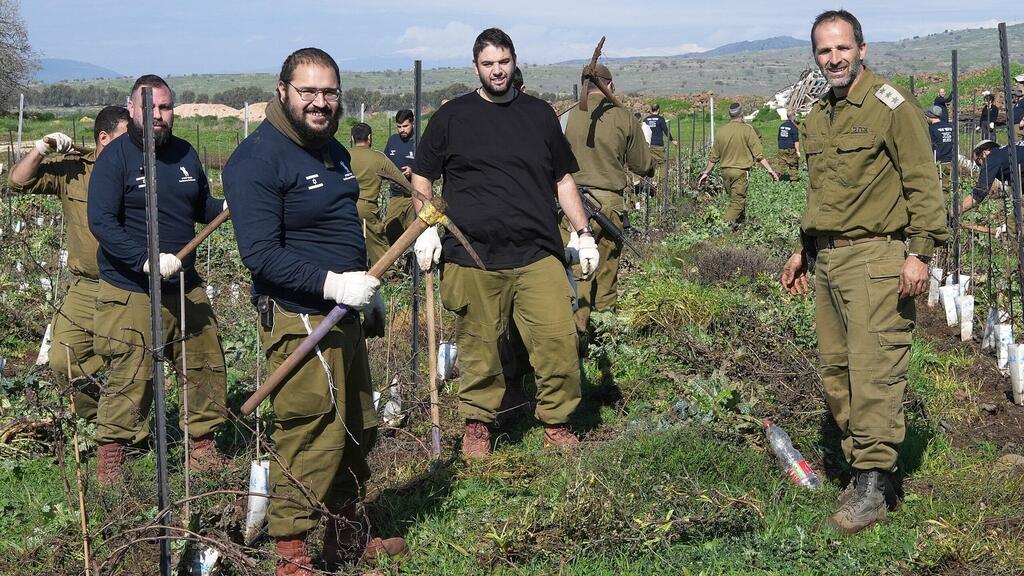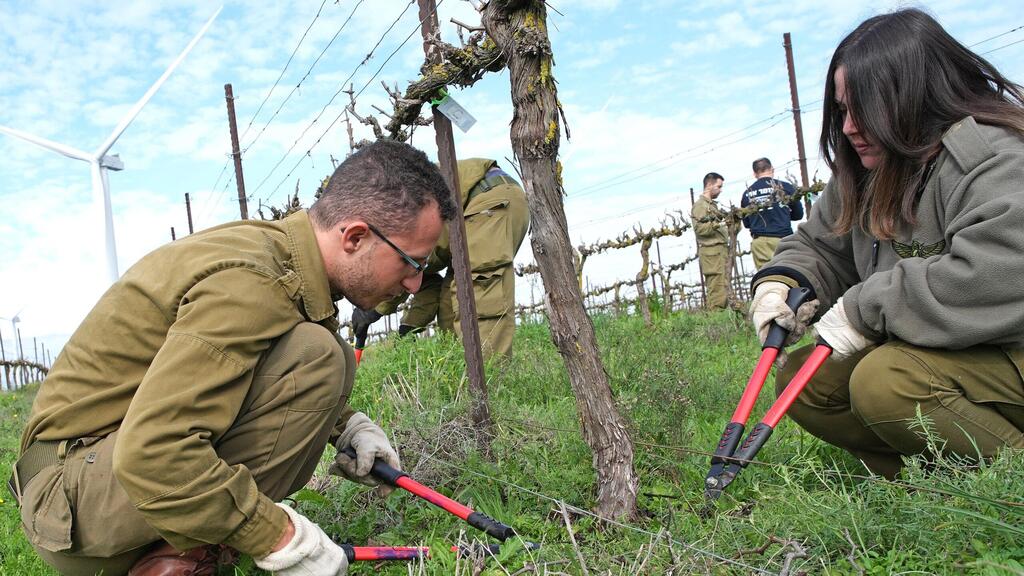Getting your Trinity Audio player ready...
Some 150 IDF 6th Brigade reserve soldiers arrived at Tzair Vineyard in the southern Golan Heights, where they dedicated several hours to its care – trimming branches, weeding and clearing stones – ultimately saving it from neglect.
Read more:
The reservists, who were called up for service on October 7 and performed tasks on the northern border, are now ending their service as part of the IDF's force replenishment operation. According to Major (res.) Ronen Feiglin, deputy commander of the 6th Brigade's rear command, the brigade members sought a meaningful way to mark the end of their service.
They reached out to the volunteer organization Hashomer Hachadash, which offered them a particularly challenging task: rehabilitating an abandoned vineyard that had not been tended to for over three months. The soldiers promptly accepted the mission.
When a joint WhatsApp group was created with the vineyard owners the evening before, they were pleasantly surprised: the vineyard owner was none other than Master Sergeant (Res.) Yair Golditsch, who served alongside Major Feiglin for 20 years until his promotion to a senior position in the brigade.
"I was very excited that we are helping not only farmers but also reservists who were mobilized and left their plot, especially when I discovered that it is a soldier from our brigade," said Feiglin.
Golditsch was allowed to set aside his operational duties and join his comrades in the brigade to save his vineyard. "This is the third time I managed to come here since the outbreak of the war, and I enlisted," he recounted.
Golditsch planted the vineyard together with his partners from the Golan, Uri Margalit and Yoav Gavish, just weeks before the war erupted. Therefore, like many farmers and business owners who did not meet the complex criteria for compensation, they are not entitled to receive state support for the damages.
"We cannot prove losses compared to the previous year because the vineyard did not exist then," explained Golditsch. "Because I was mobilized and couldn't work on it, the vineyard reached a point where, if it were not treated immediately, the vine roots and their growth could have been severely affected at this crucial stage. So, having 150 guys come to the vineyard and lend a hand when we desperately need it means a lot."





